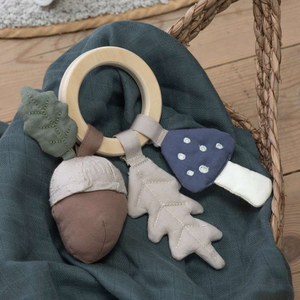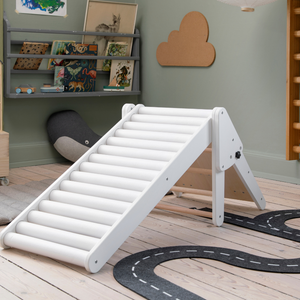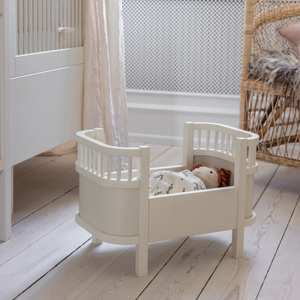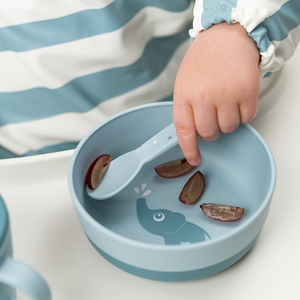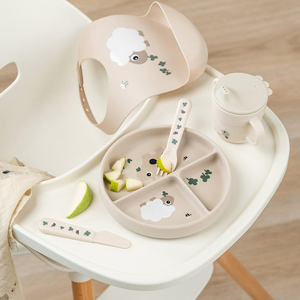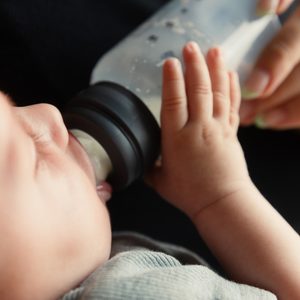There are many new feelings in the body and many new things to consider when you are pregnant. This can lead to many worries, but fortunately, most of it is quite normal. Find answers to some completely ordinary questions here.
1. I have a stomach ache, is it normal?
When you become pregnant, your body almost immediately begins to prepare to make room for your child, who will grow large inside your belly. New hormones in your body ensure that your joints become soft, so they can give way better, and as the child grows, it will press on your organs simply because it takes up space. This can cause many different kinds of pain, from a pressing sensation to small jabs in the side or actual pain, especially in the pelvis, and it is all completely normal. The best thing you can do is lie down and relax. A physiotherapist can also help with good advice if you often have pain that bothers you daily. Only if the pain becomes very intense or sudden should you call the hospital, as this could be a sign of appendicitis.
2. I can no longer feel my baby?
Many pregnant women experience that they can almost always feel their baby tumbling around inside their belly, so it can quickly make one nervous if suddenly one day it is completely quiet in there. Unless you are very close to your due date, there is no reason to panic. Just like us, fetuses also have less active days where not much happens, or it may have turned around so that the movements are not felt as clearly as before. Try drinking a cold glass of water, place your hands on your belly, and see if you can make contact with the baby by gently rubbing or pushing on your belly. Most often, it won’t be long before you feel the baby again. If you still haven’t felt anything after a whole day, you can call the midwife, who can take you in for a little check to make sure everything is okay.
3. Should I be afraid of having a miscarriage?
Many pregnant women carry around a small - and sometimes large - fear of losing the baby, especially in the first few months. According to experts, it is not so strange, as up to 40 percent of all pregnancies end in a miscarriage within the first 12 weeks. However, this almost always happens because there is something wrong with the fetus and is therefore completely natural. The best thing you can do is to put the fear aside a little and come to terms with the thought that it can happen. There is nothing you can or should do, as it is entirely natural.
4. Will the baby get sick if I get sick?
Your body is designed to be pregnant and fortunately also equipped to handle a proper bout of morning sickness or a bit of flu, even if you are pregnant. The baby can manage and grow as it should even if you are sick and may not eat or drink as much as you usually do. Take a couple of days on the sofa or in bed, drink plenty if you can, and eat as much as you can handle. There is usually no reason for concern. If you have been persistently ill for several days or have a very high fever, you should contact your doctor. It could possibly be an infection that requires treatment.
5. When is it normal to have Braxton Hicks contractions?
You can start experiencing Braxton Hicks contractions as early as halfway through your pregnancy, and although it can feel quite uncomfortable, especially the first few times, it is completely normal. What you can feel is the uterine muscle contracting and your belly becoming completely hard. This is perfectly ordinary and means neither that something is wrong nor that you are about to give birth. You can easily continue your day as usual, or you can take a break and lie down on your side if they are very bothersome. Braxton Hicks contractions can occur several times an hour, especially if you are active, and there is no reason to contact the midwife unless they are very painful or occur more often than every three minutes.
6. Is this the right decision?
The vast majority of women experience doubts during their pregnancy about whether it is a good decision to become a mother, and this is completely normal. Life changes a lot, especially the first time you become a mother, and it takes time to get used to both the thought and the realities. Of course, you will be a good mother, and together with your partner, if you have one, you will definitely be good parents, but it is also important that you discuss your expectations of each other and the life you will have with your child. Regardless, it is really important that you talk to others about the thoughts and concerns you have. It doesn’t matter if it is your partner, a good friend, your mother, or your doctor that you talk to, but it is important that you put into words what you are thinking and feeling.
7. What if I tear during childbirth?
When the belly gets really big and the due date approaches, it is completely normal for many pregnant women to become nervous about whether their body can handle giving birth. Many become afraid that they will simply tear. Fortunately, it is rare for the body to sustain serious injuries during childbirth. Most end up with just a few stitches. You can prepare for childbirth by practicing relaxation and massaging your perineum for a few minutes a day from around week 34 and onwards. Studies show that this can be particularly beneficial for first-time mothers. In addition, you can confidently trust that the healthcare staff will do everything they can to help you safely through childbirth. In recent years, much has been learned about how to best avoid injuries, including through the use of special hand techniques and warm cloths.
8. Is my belly the right size?
Pregnant women’s bellies are just as different as women’s bodies are normally, and it can be difficult to say anything about how big a belly should be. Your belly should grow, and as long as it is doing so, there is usually nothing to worry about. The size of your belly says nothing about how the baby is doing. You also cannot compare with other pregnant women you meet. Their belly may well be bigger than yours, even if they are not as far along, and that is perfectly normal. Some pregnant women need to buy new clothes after just a few months, while others can still hide their belly under a thick sweater. It simply means nothing. If you are still worried, you can always ask your midwife if everything looks right.
9. What will happen to my job?
When you become pregnant and especially when you become a mother, your work life will change. The very first thing you need to remind yourself is that it is completely normal and absolutely okay. You should not feel guilty if you become too tired or sick to work as much or for as long as you usually do. It will come back, but as a high-risk pregnant woman or as a new mother, there simply won't be the same energy for work as usual. Set aside some time to establish some new, realistic expectations for your work performance and talk to your boss so you don't feel pressure from work that isn't really there. Remember that this is nothing new in the workplace and that it is in everyone's interest that you feel good and get through your maternity period well, so you can return strongly later on.
10. How do I ensure a good birth?
As the due date approaches, it is a good idea to prepare for the birth so that you feel secure and can help determine how it will proceed. Make sure to learn as much as you can about what is going to happen through birth preparation. It gives a sense of security when the day finally arrives. You can also think about how you want to feel best during the birth. Who would you like to have present, how many can be in the room, what music would you like to listen to? You can write a list for your partner and for the midwife so they have the best opportunities to help you have a good birth. Write a little about what you expect and how you think you will react to the pain. Give the note to your midwife when you arrive at the delivery ward, and she will try to help as best she can.







